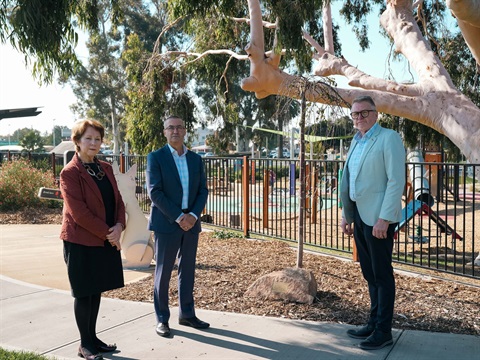Involving GPs in maternity care leads to better outcomes for mothers and babies, the AMA said today.

Releasing the AMA Position Statement on General Practitioners in Maternity Care, AMA President Dr Omar Khorshid said all people thinking about starting a family or having another baby should consult with their GP.
“Your GP will help prepare and plan for your pregnancy, support you throughout the pregnancy, and then provide the lifelong care for you, your baby and your whole family,” he said.
“Only your GP can provide that cradle-to-grave care that is the foundation of Australia’s health system.”
The AMA position statement outlines how to ensure GPs are involved in maternity care and are able to provide continuity of care to mothers and babies from pre-conception and through all the important milestones in the mother and baby’s lives.
Dr Khorshid said having a usual GP or general practice leads to better health outcomes.
“We know that best-practice maternity care is provided by a multi-disciplinary team of health professionals led by an obstetrician or GP-obstetrician in partnership with a patient’s usual GP, and includes midwives, nurses, physicians, allied health professionals and Aboriginal health workers,” he said.
“To support high-quality care for mothers, it is critical that their regular GP is involved in their care regardless of the model chosen.”
GPs provide almost all pre-conception care, undertaking the six-week check of mothers and their babies, providing immunisation, contraception, screening and referral to appropriate services. As the average time in hospital after birth is decreasing, women are now seeking advice from GPs much earlier, with issues such as breastfeeding, sleeping and parenting.
The AMA President said GPs were especially crucial in the provision of whole-of-maternity care for rural and hard-to-access groups.
“Strengthening and supporting the role and ability of GPs to be involved in holistic maternity care will increase the ability of women to have continuity of care, whole-person care and quality maternity care in their community,” Dr Khorshid said.
“We want mothers and families to make sure their GP is part of their maternity care team and we want maternity service providers across Australia to ensure that GPs are a formal part of any maternity team.”
As part of ensuring safe access to maternity services in Australia, it is also time for Government to act to stem the loss of comprehensive maternity services in parts of rural Australia, Dr Khorshid said.
“The closure of rural maternity services not only reduces access to safe and effective maternity care for the almost 30 per cent of Australian women who live outside of major cities, but also undermines skills of GP obstetricians and Rural Generalists, nurses and midwives.
“Australia has world-class maternity services and if we are to maintain this record, more needs to be done to ensure women have access to high-quality, collaborative models of care that involve obstetricians and GP-obstetricians working in partnership with a patient’s usual GP and other members of the health care team.”
The AMA Position Statement on General Practitioners in Maternity Care is available here.






